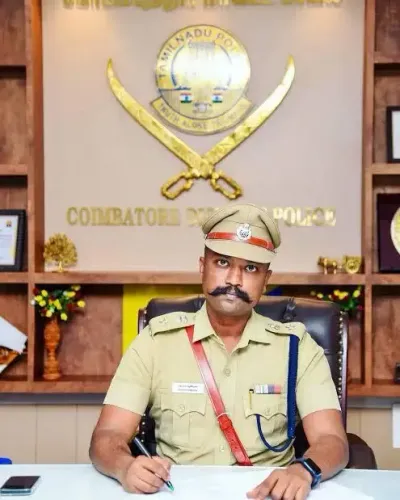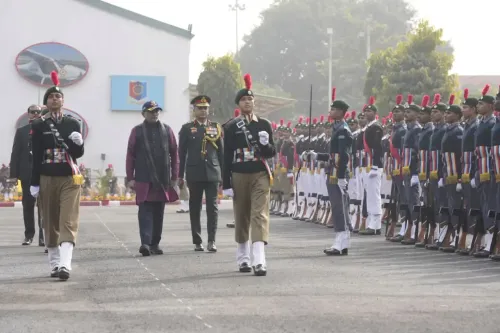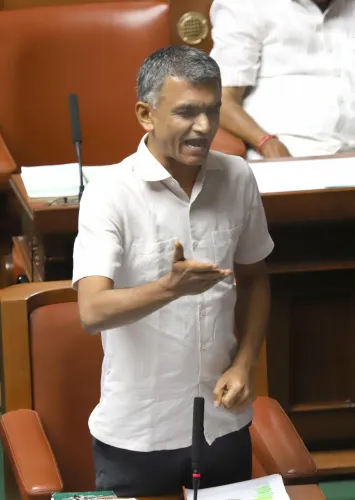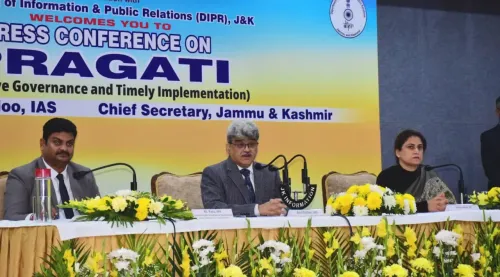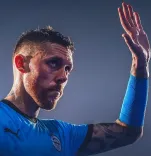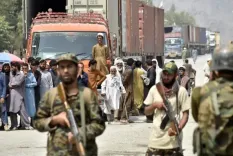Why Did PM Modi Brief President Murmu After Foreign Visits?
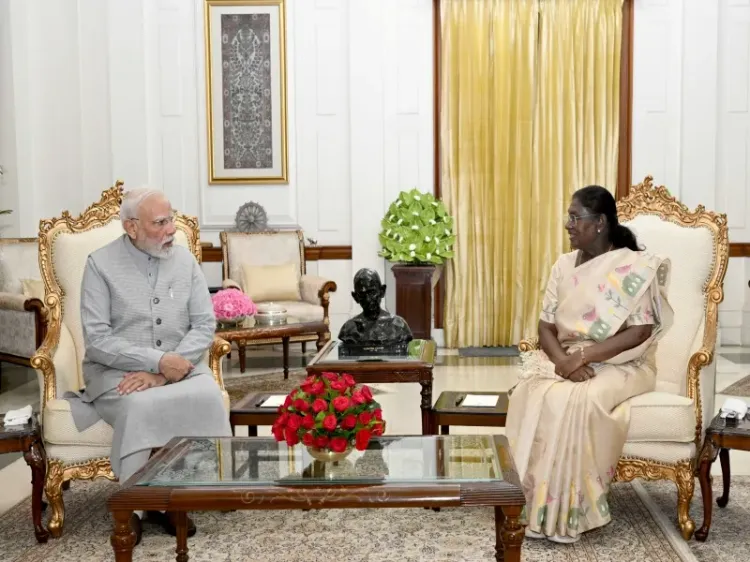
Synopsis
Key Takeaways
- PM Modi's adherence to protocol reflects respect and tradition.
- Contrast with past political relationships highlights the importance of trust.
- Regular briefings reaffirm democratic values and constitutional roles.
- Institutional harmony is essential for political stability.
- Respect and humility are key in democratic governance.
New Delhi, Sep 7 (NationPress) Within the influential corridors of New Delhi, the dynamic between the President of India and the Prime Minister has historically been more than ceremonial — one represents tradition, while the other embodies executive power. The essence of their relationship is steeped in respect, tradition, and the political culture of the nation. How these traditions are honored or overlooked reveals much about leadership and constitutional respect.
On Saturday, Prime Minister Narendra Modi paid a visit to President Droupadi Murmu at Rashtrapati Bhawan shortly after his return from a significant diplomatic journey to China and Japan. This encounter was far from mere formality; it was a crucial element of a well-established protocol that PM Modi has adhered to throughout his administration: to inform the President of India following every important international engagement.
During his visit to Tianjin, China, for the 25th Council of Heads of State of the Shanghai Cooperation Organization (SCO), PM Modi engaged in vital discussions regarding global governance reforms, counter-terrorism efforts, and economic partnerships. Additionally, he held strategic bilateral talks with President Xi Jinping and President Vladimir Putin. Upon his return, he made it a point to personally brief President Murmu—not just about the visit but also its implications and outcomes for India.
S Gurumurthy, an RSS ideologue and editor of Thuglak magazine, commented on the profound difference between this act and the fraught relationship between former President Giani Zail Singh and then Prime Minister Rajiv Gandhi.
“Seeing Modi uphold this protocol of briefing the President after foreign visits reminds me of the time when President Zail Singh expressed his distress over PM Rajiv disregarding this very tradition, which led to his humiliation,” Gurumurthy shared.
He recounted a pivotal moment in India's political history, stating that President Zail Singh felt so undervalued by Rajiv Gandhi that he sought assistance in drafting a letter to the Prime Minister, voicing his concerns over the apparent disrespect towards the President’s office. This letter, which Gurumurthy helped draft, was subsequently refined by Mulgaonkar, then editorial adviser of The Indian Express, and published on March 31, 1987.
Gurumurthy asserts that this letter marked the beginning of a series of controversies that ultimately destabilized Rajiv Gandhi's administration.
“I was arrested on the midnight of March 13,” Gurumurthy remarked. “That was the first bomb that detonated on Rajiv. Within a week, scandals involving Fair Fax and HDW Bribe emerged, followed by VP Singh's resignation, and revelations on Bofors—all within 40 days. Rajiv never fully recovered from that.”
The discord between Zail Singh and Rajiv Gandhi transcended personal grievances. It epitomized a significant breakdown of trust between the two highest constitutional entities in the country, showcasing a clash between ego and authority against dignity and decorum, leading to severe repercussions.
In stark contrast, PM Modi’s consistent practice of updating the President is not merely a courteous gesture; it stands as a deliberate reaffirmation of democratic principles and constitutional integrity. Regardless of whether it was President Kovind or now President Murmu, PM Modi has unfailingly upheld the dignity of the office, even in the absence of political necessity.
By doing so, PM Modi is not merely continuing a tradition—he is reestablishing the President’s position as the guardian of the Constitution and, by extension, the people's sovereignty.
Where Rajiv Gandhi’s era witnessed a breakdown in this crucial relationship, sowing the seeds of political turmoil, PM Modi’s approach illustrates a model of institutional cooperation.
“This serves as a reminder that in a democracy, power should not solely be seen as authority; it must also encompass humility and protocol—particularly when engaging with the nation’s highest office,” commented a political analyst.


